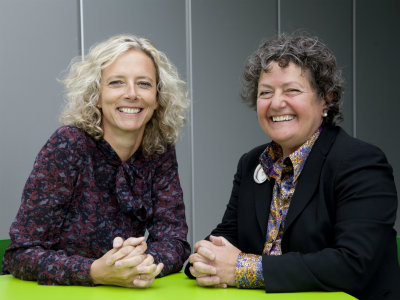
Improving use of the Mental Capacity Act among children’s social workers will be key to reducing risk averse practice, the chief social worker for children has said.
Speaking at the national mental capacity action day event in London, Isabelle Trowler said practitioners were at “the beginning of a journey” in improving their use of the MCA in work with children and families.
The legislation could help children’s social workers weigh up risks more effectively and ensure people participate fully in decisions, she added.
‘We must work with risk’
She said: “We must do everything to avoid risk averse practice, which often destroys personal freedom to participate as a full citizen and make independent decisions, but also make sure we protect those that need protection and support.
“That in turn requires an understanding that it is people who support other people. It is not procedure and it is not process. In my 25 years in children’s services I’ve seen sometimes disastrous consequences of a tick-box paper trail determining family futures. Decisions we take can be highly complex. Making the wrong choice can be very dangerous indeed, that’s for sure, but the inherent risks in our work will never be ironed out.
“So we must work with risk. In children’s services it seems to me we are at the beginning of a journey in relation to the act. There are some obvious examples where it can help – young people in transitions into adulthood, deprivation of liberty of those children, working with parents and carers of children for whom we have responsibilities. We need to ensure in those examples that people participate as fully as possible in profound life changing decisions, as well as the day-to-day decisions, which too can mean so much.”
‘This is core social work’
Trowler said she would be working to raise the act’s profile in children’s services over the next year and would also be training as a best interests assessor (BIA) in coming months. BIAs are the group of professionals, mostly social workers, trained to coordinate Deprivation of Liberty Safeguards (DoLS) cases.
Lyn Romeo, chief social worker for adults, told delegates the MCA should be seen as “core social work” and said she wanted to see improvements in how the legislation was covered in social work training.
She said: “I’m really going to be pushing for every social work student to have MCA knowledge firmly embedded. I want us to get to a place that when people come off their social work courses they feel well equipped and able to apply the principles of the act and be able to take on best interests assessor roles and do that well.”
The action day was run by the government’s national mental capacity forum. To mark the event, the forum published more than 130 examples of projects that have boosted the implementation of the MCA locally. These included projects offering social workers additional report-writing and court skills, a social workers’ MCA toolkit and a scheme to improve service user involvement in training.
Other mental capacity action day coverage on Community Care:
- ‘Staff need Mental Capacity Act training rooted in practice, not legalese’
- Social care has the wrong view of risk – to the detriment of learning disabled people
- The Mental Capacity Act is about treating people as human beings worthy of respect
- How social workers can resist risk-averse practice and uphold human rights


 Bournemouth, Christchurch and Poole
Bournemouth, Christchurch and Poole  Hampshire County Council
Hampshire County Council  Lincolnshire County Council
Lincolnshire County Council  Norfolk County Council
Norfolk County Council  Northamptonshire Children’s Trust
Northamptonshire Children’s Trust  South Gloucestershire Council
South Gloucestershire Council  Wiltshire Council
Wiltshire Council  Wokingham Borough Council
Wokingham Borough Council  Children and young people with SEND are ‘valued and prioritised’ in Wiltshire, find inspectors
Children and young people with SEND are ‘valued and prioritised’ in Wiltshire, find inspectors  How specialist refugee teams benefit young people and social workers
How specialist refugee teams benefit young people and social workers  Podcast: returning to social work after becoming a first-time parent
Podcast: returning to social work after becoming a first-time parent  Podcast: would you work for an inadequate-rated service?
Podcast: would you work for an inadequate-rated service?  Family help: one local authority’s experience of the model
Family help: one local authority’s experience of the model  Workforce Insights – showcasing a selection of the sector’s top recruiters
Workforce Insights – showcasing a selection of the sector’s top recruiters 

 Facebook
Facebook X
X LinkedIn
LinkedIn Instagram
Instagram
Children’s services social workers certainly can benefit from MCA, developing our expertise and deepening this will be crucial. I welcome Isabelle’s leadership on this. In my own LA we are planning significant work and activity in this area, it will also form part of our ASYE, and will be linked to the Teaching Partnership development.